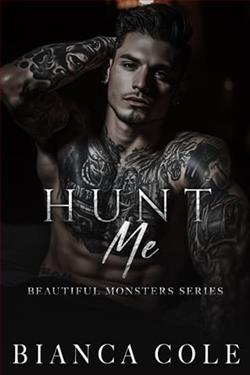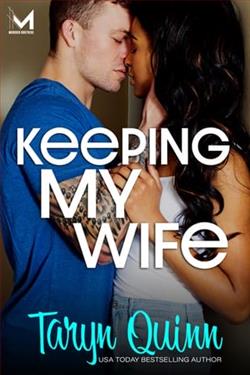Page 12 of Trapped with the Forest Ranger
But I don’t. Because he didn’t shut me out. Because the ache behind his eyes is too human to ignore.
“What happened?”
He turns his head and looks at me. Really looks. And what I see in his eyes isn’t just memory—it’s flame. Pain. Guilt. Fierce, relentless love. All braided together in a knot he doesn’tknow how to untangle.
“We’d already pulled everyone out,” he says. Each word is deliberate, like it costs him something. “Or thought we had. Then we got a call—a kid, separated from his family. Smoke thick as concrete. Fire jumping ridges like it was chasing ghosts.”
“You went in.”
He shrugs, like it was nothing. Like racing into hell was just another Tuesday. “Didn’t think. Just moved.”
But I see the way his hand curls into a fist against his thigh. The way his breath stutters—so slight, so controlled.
My throat closes. “And your teammate?”
A pause. And then he says it, flat and brutal.
“Didn’t make it.” He looks away, a muscle ticking in his jaw.
The room is so quiet, even the fire seems to hold its breath.
He doesn’t explain. Doesn’t elaborate. Just stares at some invisible point on the floorboards like if he focuses hard enough, he can hold the memory still. Or maybe bury it.
I want to reach for him. To offer touch. Warmth. Something.
But I don’t.
Because I don’t think he’s ever said those words out loud, and in this moment, holding space for them feels more sacred than any comfort I could give.
I don’t reach for him. He wouldn’t want that. But I see him. The grief he carries like it’s stitched into his skin. The way he’s built his whole life around silence, solitude, and surviving the wreckage.
“You saved that kid,” I whisper.
“I left someone behind,” he snaps, then exhales like the words cost him something. “I don’t need a medal for doing my job. Definitelynotfor getting a teammate get killed.”
I shake my head. “No medal. Just… someone who sees you.”
He blinks at me. Like he doesn’t know what to do with that.
With me.
The concession, small as it is, feels significant. I nod, accepting the information without pushing for more.
"Your turn." He takes a bite of food, eyes still on me. "Why chase eagles in storm season?"
"My father was a wildlife photographer. The golden eagle was his white whale—he spent twenty years trying to capture the perfect shot." I smile at the memory. "He died two years ago, his collection incomplete."
"So you're finishing it for him."
"Trying to. I've got shots of forty-seven of the forty-eight species he documented. The eagle is the last one."
"Why now? Storm season isn't ideal for photography."
"Eagles nest in spring. This was my window." I shrug, not mentioning the anniversary of Dad's death approaching, the deadline I've set for myself to complete what he couldn't.
Caleb nods, something like understanding crossing his features. We finish eating in companionable silence, the earlier tension eased by this exchange of personal truths, however small.
Our brief exchange, rather than feeling like a normal conversation, feels as if I’ve fought a battle, and I don’t know if I’ve lost or won.















